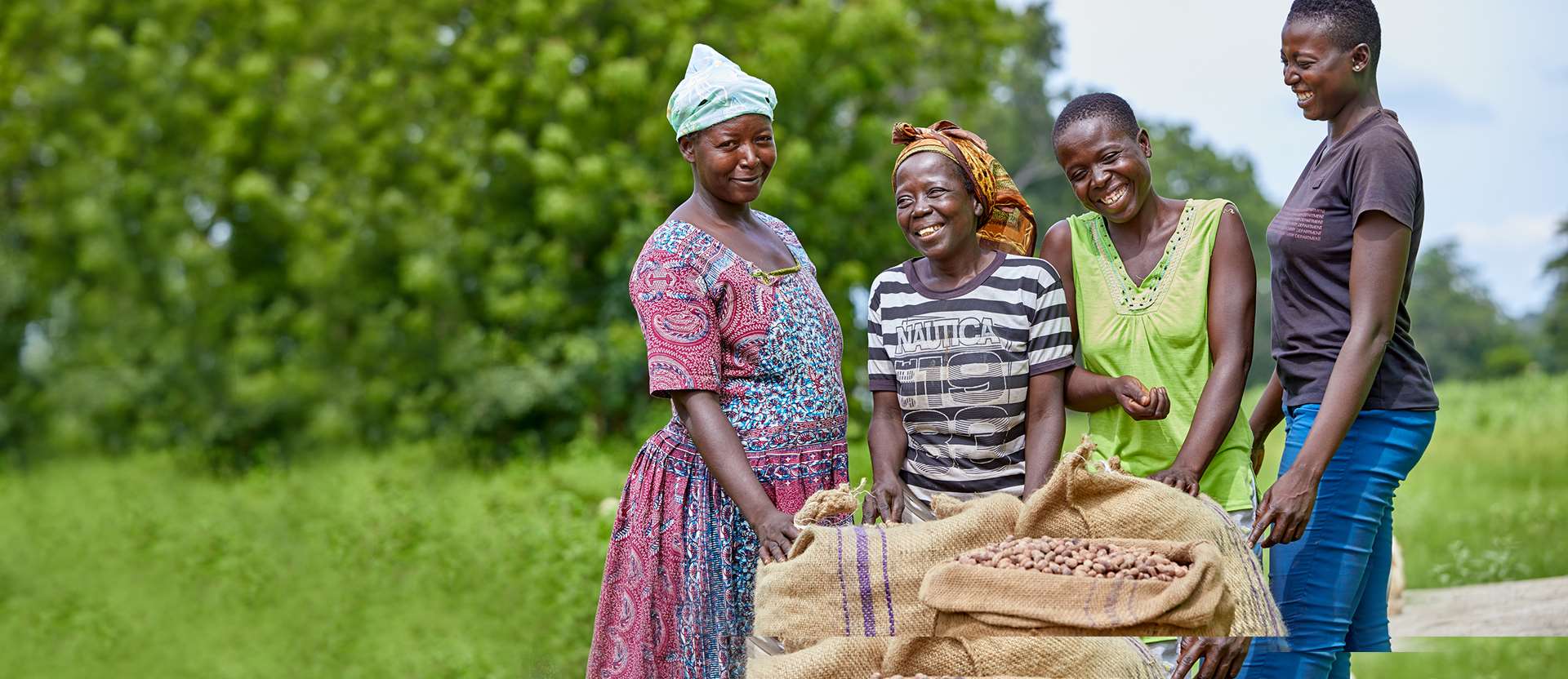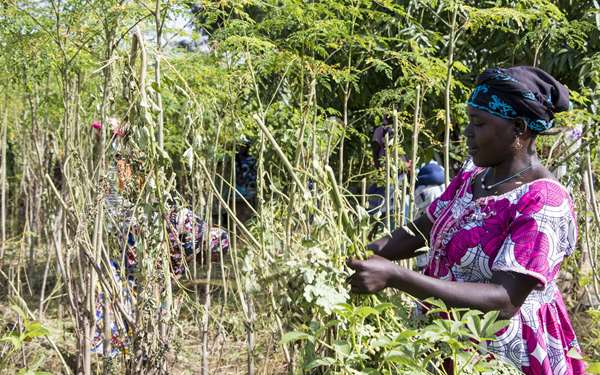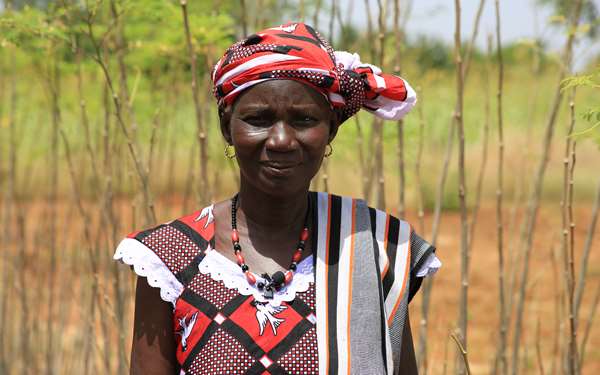
Community Garden Week: Bringing People Together
03rd April 2023Gardens are well known for being spaces where people go to feel connected, whether to nature, to the land, or to each other. Over Community Garden Week 2023, we're taking a closer look at the cooperative gardens that are being formed across West Africa, where people are coming together to grow the trees and nutritious plants that help their communities thrive.
In many communities across the drylands of Africa, lack of access to land, deforestation and the effects of a heating climate means that people are being pushed into becoming more and more dispersed. Not enough sustainable food sources also mean that people must travel far from their families, especially during the dry season when fewer things grow. This can have a huge impact on the community. Gardens can offer a solution.

What is Community Garden Week?
Community Garden Week 2023 takes place between the 3rd and 9th of April. It is held every year in the first week of April, and this year it celebrates the important role that community gardens play in helping to support our environment and our sense of well-being.
How are community gardens helping people in West Africa?
Community gardens are small areas of land, usually found in the centre of villages, which are owned and run by the local community. These gardens are dedicated green spaces, where trees and plants are grown and tended by members of the group, helping to provide people with both an income from the tree produce, and a rich source of nutritious food.
In these community gardens, project participants are trained and equipped with the tools they need to both manage the land sustainably, and to create thriving enterprises such as making soap and shea butter from the nuts, as well as a reliable food supply from the fruits and leaves that grow in the gardens.
On top of this, the community gardens also offer an important way forward in tackling the effects of deforestation and the encroaching desert. Planting trees helps to improve soil quality and offers vital sources of shade in ever-rising temperatures.
Learn more about our approach to community gardens.


Women at the heart of the land
Community gardens are especially beneficial for the women who participate in these projects. This is because in many areas in the drylands of Africa, women are the primary food producers, responsible for collecting water, firewood, and other natural resources. However, because of gender inequality, women often have limited access to land, and their contributions to sustainable land management and restoration are often overlooked.
This is why Tree Aid works closely with local governments in Mali to promote gender equality and secure women's access to land. With advocacy work and training on land rights, women are coming together to create cooperatives that manage community and nutrition gardens, placing them at the forefront of sustainable land restoration.
Bringing people together
Alizeta is a project participant living in the rural drylands of Burkina Faso. Having worked as a livestock farmer for over 40 years, Alizeta has discovered huge benefits from coming together with other women farmers. Working collaboratively, they are now able to fetch higher prices for their goods at local markets and have also established 14 new kiosks and 2 shops for their thriving business enterprise.


Growing stronger communities
For many of the participants, working with members of their village has been one of the most valuable parts of the project. Getting together has helped them to learn new skills, feel connected and access more support.
Ané is a mother of three, living in the Ségou region of Mali. As a member of Tree Aid’s She Grows project, Ané has experienced the advantages of joining forces with other women in her community to form a garden cooperative.
Alizeta and Ané have seen the amazing benefits of community gardens - with your help we can scale up and reach more communities, and share this successful method that is proven to work.
